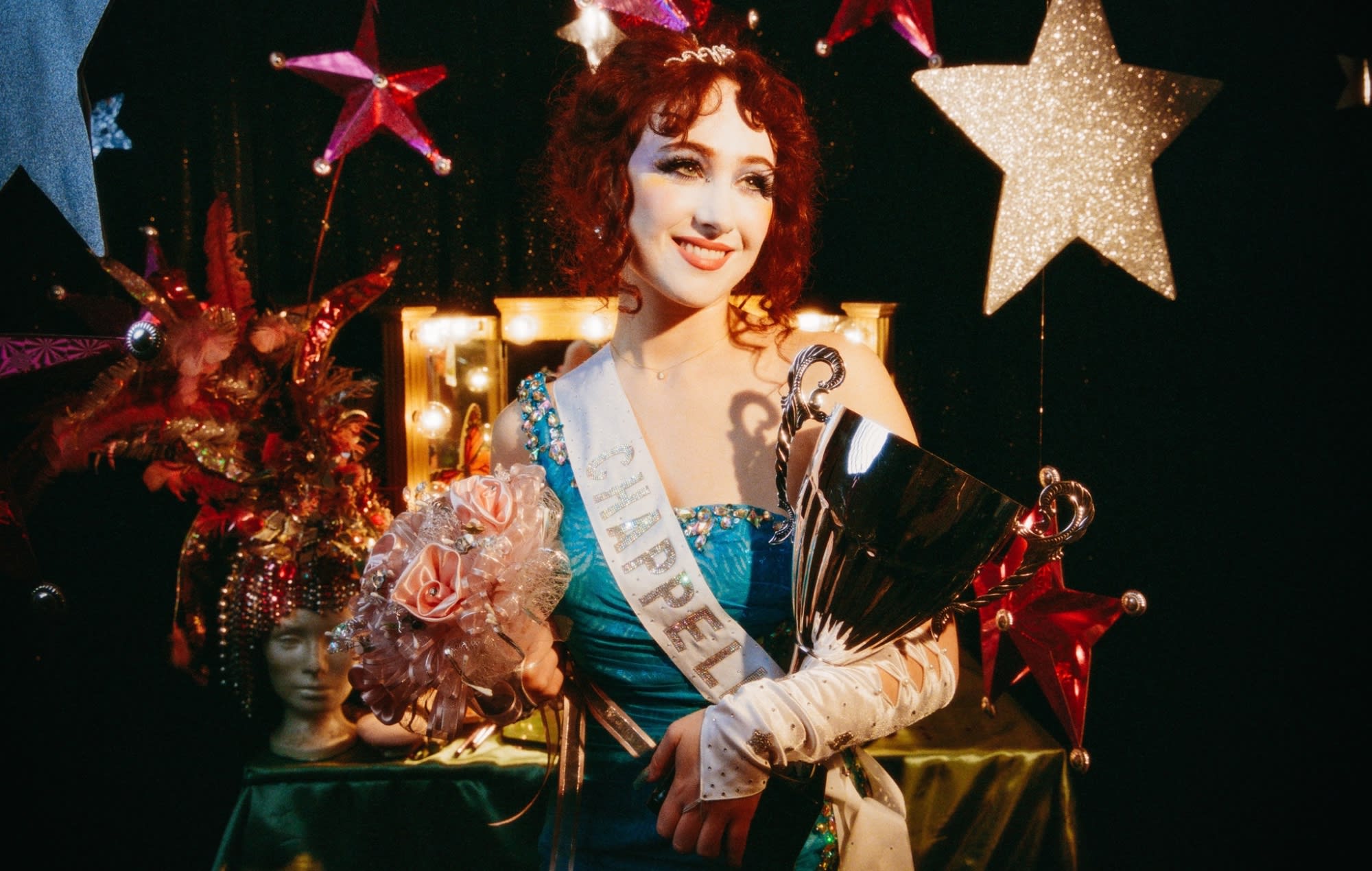
Chappell Roan has been hailed as “L.A.’s queer pop superstar in the making,” but her path toward stardom was anything but traditional. Born Kayleigh Rose Amstutz, the singer entered the music industry at 17 after uploading her original music to YouTube. Amstutz adopted the stage name Chappell Roan in memory of her deceased grandfather, Dennis K. Chappell, and his favorite song, “The Strawberry Roan.” She traveled to New York to perform live in a series of musical showcases, where she was signed by Atlantic Records. Unfortunately, her working relationship with Atlantic Records did not last long; despite the success of Roan’s 2020 single “Pink Pony Club,” the record label chose to drop her. During the pandemic, Roan moved from Los Angeles back to her hometown due to economic troubles. She held on to her aspirations, bouncing back as an independent recording artist for two years before signing with Island Records in 2023. Roan channeled each of these disappointments, transitions, and triumphs into her new debut album, The Rise and Fall of a Midwest Princess.
Leading up to her new album’s release, Roan released a two-part docuseries called “Chappell Roan—The Rise and Fall of a Midwest Princess.” The docuseries follows her as she returns to her hometown of Willard, Missouri and reflects on the impact her religious midwestern upbringing has had on her music.
“I’ve always wanted to tie my project back here,” Roan said. “I have to honor this place that raised me, no matter how I feel about it. Like, it’s just always going to be a part of me.”
The album echoes these feelings while exploring Roan’s complicated relationship with her upbringing.
Many of the tracks on the album focus on the concept of dreams and fantasies. Not unlike Dr. Frank-N-Furter of “The Rocky Horror Picture Show,” Roan invites listeners into her world of uninhibited expression. “Pink Pony Club,” the therapeutic anthem that cemented her status as a queer icon, tells the story of a girl leaving small-town Tennessee to pursue her dream of stripping in West Hollywood. The single was inspired by a night out at the famous West Hollywood gay bar, The Abbey. “Pink Pony Club”’s emphasis on living authentically and embracing sexuality deeply resonated with her audience.
“All of a sudden I realised I could truly be any way I wanted to be, and no one would bat an eye,” Roan said in a Headliner article.
In stark contrast to “Pink Pony Club,” “California” describes Roan pining to return to her hometown. Its emotional core is plucked straight from Roan’s real life. In the song, she recounts the feelings of failure and culture shock she experienced during her time in Los Angeles.
“Picture You” plays with the idea of fantasy. Roan addresses the song to the listener, creating a feeling of intimacy. There’s a hesitancy to her words.
“Do you feel the same? / I’m too scared to say / half of the things I do / when I picture you,” Roan sings.
“After Midnight,” on the other hand, is unapologetically flirty. In keeping with the album’s general themes, the first verse alludes to the shame around sexuality Roan internalized during her upbringing. The pre-chorus quickly transitions us into the liberated pop star we know and love.
“This is what I wanted / This is what I like / I’ve been a good, good girl for a long time / But baby, I like flirting / A lover by my side,” Roan sings.
The song’s catchy beat and memorable lyrics make it a stand-out on the album.
The album strikes a delicate balance between upbeat pop-perfection and meaningful ballads. In “Super Graphic Ultra Modern Girl” and “HOT TO GO!,” Roan delivers pure fun. These Y2K-inspired songs are sure to get people singing and dancing along within seconds. Both were released alongside music videos that perfectly capture their energy and aesthetics. This is an exciting shift as she wasn’t always confident in including these types of songs in her career.
“I thought it made me ‘less of a writer’ to write a song that really had nothing to do with anything other than having fun and being hot,” Roan wrote in an Instagram post released the day before the album dropped. “I was wrong…”
Roan’s vocals shine on ballads like “Kaleidoscope,” “Coffee,” and “Casual,” all of which highlight two of her superpowers: specificity and theatricality. Each song uses vivid details to articulate how she feels about a unique situation. Roan draws from her real-life relationships for inspiration, allowing her to craft exceptionally vulnerable and relatable lyrics. The character of Chappell Roan may project complete confidence, but her wistful ballads read 100% true to the person behind the persona.
Roan is currently on tour and will be performing at College Street Music Hall in New Haven in April. Tickets are currently available on Eventbrite and can also be accessed through her website. She will also be opening for the first leg of Olivia Rodrigo’s GUTS tour.
Bee Forman can be reached at bforman@wesleyan.edu.



Leave a Reply